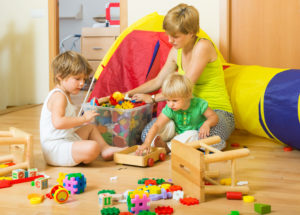Free-range parenting can roughly be seen as the opposite of helicopter parenting. You give them enough autonomy as a free-range parent instead of monitoring every behavior of your child, to ensure that it grows self-confident. Scroll down to know more about what free-range parenting is and why it is growing in popularity.
What is Free Range Parenting?
The most buzzworthy mark of 2016 seems to be free-range parenting. It refers to parents willing to step back and allow their kids to explore the world without the constant overhead swing of mom and dad.
Most parents who embrace free-range parenting do so while nostalgically looking back on their own childhoods when children were allowed to ride bikes with their friends in the neighborhood for hours on end, and parents did not expect them to be home until the streetlights came on.
There are many varieties of free-range parenting. Online examples of those who take it to an extreme can be found. But this parenting style’s main goal is to give children a sense of freedom from which they will hopefully learn and grow.
Pros and Cons of Free Range Parenting
Like any kind of parenting that borders on the ends of the spectrum, free-range parenting entails both benefits and drawbacks.
Pros
- Children will have the opportunity to enjoy more time outdoors or in activities without waiting for their parents to be there.
- Children can be more creative when there is no one to oversee them. This means they have more chances to be explorative and adventurous.
- We have an opportunity to learn how to solve problems themselves without the need for help.
- It includes times when they have to face unfair circumstances where their parents do not rush to defend themselves.
- You’ll also have more time for yourself without your children’s constant worry or anxiety about their safety
- You know that your kids have a good time out there and there’s nothing to think about.
Cons
- More unattended time also means more ways they can hurt themselves. They may be playing a new game on the tree and misjudging the height of their jump; in such cases, there are no adults to deter them.
- It takes some time before your child actually knows what’s safe and what’s not. Often you need to try and make it right, and you have to be there to monitor. Before they can be good enough by themselves, you will have a lot of training to do.
- Maybe you’ll soon build a reputation as an irresponsible parent or someone who’s too careless.
How to start a Free Range Parenting
If free-range parenting falls within your idea of a good form of parenting, here are some tips to help you get started.
1. Set the ground rules
Free range does not mean that you allow your children to do whatever they please. Their autonomy exists within a broader regulatory framework that ensures that things don’t fall apart. For example, if your child wants to go down to his friend’s house alone, will he keep his word that he’ll call you as soon as he gets there or calls you before he leaves home? Is he sufficiently competent to recognize and conform to the importance of these rules? If so, lay down the rules for him only when he does not break the rules and grant him freedom.
2. Get your child ready for the obstacles they’d face
It is essential to know how to get out of dangerous situations when they are alone, analyze people and recognize the threat from a distance. It means having frank conversations with them about the potential risks and how to get out. For instance, if a stranger asks him to get into his car to help him find his lost cat, your kid should not just run away, but run in the opposite direction to the car. He should already be on the next street yelling for help by the time the car turns around to follow him. Practical tips like these are difficult to talk about, but they can save his life.
3. Hide your worries and promote freedom
Fear is our first instinct to motivate resistance to free-range parenting, and that’s what keeps us, helicopter parents. It should be understood that risks are inevitable and that accidents can occur with the injury of your child. The benefits of this approach to parenting, however, outweigh the risks. Encourage your child to be more confident whenever possible.
It will be better prepared for adulthood for children who are allowed greater control in their lives while knowing and taking responsibility for the consequences of their actions. Free-range parenting is a good way to ensure that your children as adults are able to successfully navigate the complications of modern life.
Also Read: What’s Your Parenting Style?













